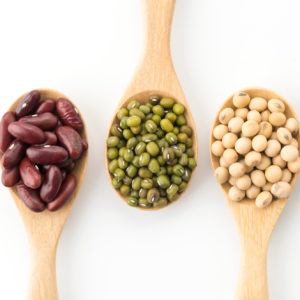-
Patient Resources
-
-
Services
-
-
Service Details
-
Proudly Part of Privia Health

Hotflashes | March 2021
Endometriosis Awareness Month

Endometriosis, or endo, is a disease where the tissue that forms the inside lining of the uterus grows where it doesn't belong - sometimes on the ovaries, fallopian tubes and other organs found in the pelvic area - which can cause chronic pain. Symptoms related to endometriosis vary, and some symptoms are associated with pain that can be debilitating and may interfere with day-to-day activities. Common symptoms of endometriosis include swelling and period pain, as well as pain throughout the month and during sex. It affectes one in 10 women of reproductive age in the United States. Some girls start experiencing pain as early as age nine.
If you or your daughter have been experiencing abdominal pain, especially when combined with a cycle, contact a doctor to help diagnosis the issue. Don't just live with the pain. There a treatment options available and a better quality of life ahead.
Beans Over Meat

There's more evidence that swapping out a juicy steak for plant-based meals can benefit your health. A new study from Trusted Source, based on 30 years of observation, has reconfirmed that replacing red meat with plant-based protein can help keep your heart healthy.
The study, published by The BMJ, showed that replacing red meat with high-quality plant foods, like beans, nuts, or soy may be associated with a modestly reduced risk of coronary heart disease (CHD). The study also suggests that replacing total red meat consumption with whole grains and dairy products, and processed red meat with eggs, may also reduce this risk. Researchers based their findings on observing 43,272 U.S. men with an average age of 53.
Red meats to stay clear of include processed bacon, hot dogs, sausages, and salami, which are associated with an increased risk of death and major chronic diseases, according to the study.
Choosing plant-based options over red meat can help reduce the amount of saturated fats, cholesterol, and heme iron, which can keep the heart healthy. Plant-based options also increase the intake of unsaturated fat, fiber, antioxidants, polyphenols — all of which can benefit heart health by either increasing protective cholesterol, reducing bad cholesterol, or improving the function of the heart's blood vessels. Pass the beans!
(healthline.com)
Stone Cold Struggle

Kidney stones are common — if you haven't had a kidney stone, you likely know someone who has as kidney stones affect 1 in 11 people in the United States. Overall, about 19 percent of men and 9 percent of women in the United States will develop a kidney stone by the time they are 70 years old.
Kidney stones typically develop when there is too much waste and not enough fluid in the kidneys which can be due to a number of factors, including:
- Not drinking enough water
- Not getting enough calcium
- A diet high in salt or sugar
- A lack of citrate, a substance that help prevent stones from forming
- Family history and genetics
- Eating large amounts oxalate-rich foods (such as nuts, spinach, chocolate, and certain teas)
- Drinking colas, which contain phosphate and have a high sugar content
- Consuming too much animal protein
A kidney stone often goes unnoticed until it starts to pass into your ureters. Once this happens, symptoms typically appear without warning. You'll likely feel sharp, stabbing pain at the bottom of your ribcage, though the pain can shift into the genital area as well. The pain from kidney stones often comes in waves, and you may feel better for a few hours before the pain comes back.
Depending on the size of the stone, it can take up to six weeks to pass (though many patients opt for interventions within that time frame). Small stones may take only a few days to a week to pass. Your doctor will likely prescribe medications to help you manage the pain during this time. Anti-inflammatory medications can help reduce pain while passing a kidney stones as well.
(everydayhealth.com)
